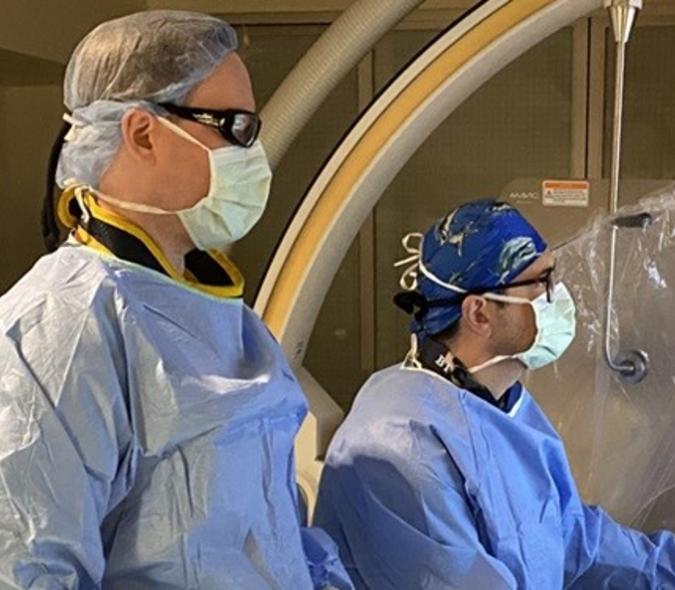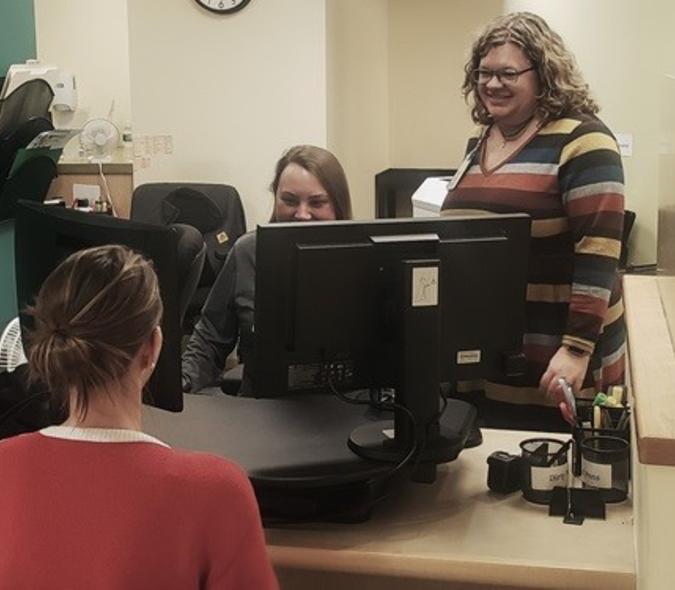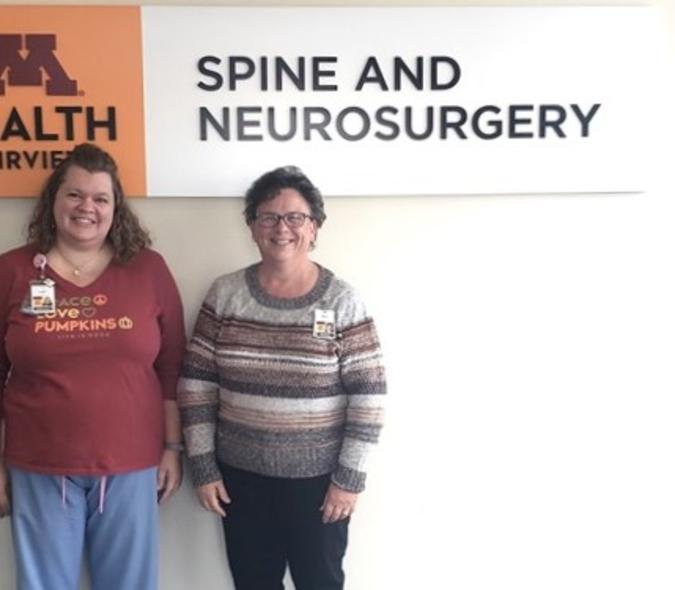
Working with neurosurgeons to address patients’ psychological, cognitive concerns
Neurosurgeons collaborate with many different healthcare providers. One important relationship is with neuropsychologists. “Our neuropsychologists make sure our patients are psychologically ready to undergo surgery and that a support system is in place to assist them post-operatively,” said neurosurgeon Robert McGovern, MD. “They do a fantastic job of evaluating people.”
According to the American Psychological Association (APA), neuropsychological evaluations are requested “specifically to help understand how the different areas and systems of the brain are working. Testing is usually recommended when there are symptoms or complaints involving memory or thinking. This may be signaled by a change in concentration, organization, reasoning, memory, language, perception, coordination, or personality. The change may be due to several medical, neurological, psychological or genetic causes.”
Required for deep brain stimulation
Every patient who is a candidate for deep brain stimulation, for example, must undergo a neuropsychological exam. “We are looking to see if the patient may have dementia, or cognitive concerns suggestive of a cause other than for what they are already being treated,” said Erin Holker, PhD, LP, ABPP-CN, Director, Division of Adult Neuropsychology. “We are also looking to see if there are emotional or psychosocial concerns that need to be addressed and are establishing a pre-surgical neurocognitive baseline.”
The examination typically consists of administering standardized tests using oral questions, paper and pencil, computers, the manipulation of materials such as blocks and puzzles, and other procedures, notes the APA. Depending on the scope and intent of the evaluation, testing may focus on a wide range of cognitive functions including attention, memory, language, academic skills, reasoning, and problem solving, visuospatial ability, and sensory-motor skills. The neuropsychologist may also administer tests and questionnaires concerning psychological aspects of mood, emotional style, behavior, and personality.
COVID complications
Administering these tests has been complicated by the coronavirus pandemic. “Our procedures are historically done in the clinic,” said neuropsychologist Eric Waldron, PhD, LP, ABPP-CN, Department of Rehabilitation Medicine. “We now may complete exams via telemedicine, over the phone, or on a computer. We can do a surprisingly good job of assessing patients that way.”
Both neuropsychologists work with Neurosurgery Department surgeons who treat conditions such as movement disorders, epilepsy, stroke, brain tumors, and normal pressure hydrocephalus. Every patient being considered for deep brain stimulation (DBS) surgery for Parkinson’s disease, for instance, undergoes a neuropsychological evaluation before a surgical decision is made, according to Holker.
Working with epilepsy patients
Waldron spends about 40 percent of his time working with the neurosurgeons who help patients minimize symptoms related to epilepsy. “The tests we perform assess different areas of the brain, which can indicate relative abnormality,” he explained. “In epilepsy, it’s common that seizures originate in the hippocampus. If seizure onset is located near the left hippocampus and if the Wada test result shows that area is critical for language and memory function, the surgeons are often reluctant to remove that tissue and will opt for something such as deep brain stimulation or responsive neurostimulation.”
The Wada test, named for Japanese surgeon, Juhn Wada, MD, who pioneered the procedure, helps determine which side of the brain controls language function and how important each side of the brain is regarding memory function. It’s a crucial tool when evaluating an epilepsy or tumor patient for potential surgery.
Is surgery a good option?
Through these assessments, the neuropsychologist helps neurosurgeons determine whether surgery is a good option and if so, to help avoid affecting brain tissue associated with important cognitive functions. “We have to make our best educated guess about whether the tissue we remove to reduce or eliminate the seizures might make them worse from a cognitive perspective,” said McGovern. “It could affect language or memory … it’s important to thoroughly assess that risk.”
In addition to cognitive and other pre- and post-surgical assessments they perform, Waldron and Holker are psychologists. “Many brain conditions have comorbid psychological issues such as depression and anxiety,” said Waldron. “It could also be a reaction to the effects of the brain tumor or the stroke. We are sensitive to those things and can refer patients to get the treatment they need.”
Cases varied, complex, interesting
Holker enjoys working with the neurosurgeons, “Because it allows me to participate on a multidisciplinary team and to assist with treatment planning and provide patient care. I particularly enjoy the types of referrals we receive from neurosurgery, which are varied, often complex, and always interesting.”
The neuropsychologists also see patients following surgery. “This is often to assess whether there has been change from a cognitive or emotional perspective, and how their cognitive or emotional functioning might affect their lives,” said Holker. “There might be concerns about their being able to return to work or about emotional functioning or their psychosocial support system that we can identify and make recommendations about.”
These patients have a lot of life left to live, according to Waldron. “When a careful neuropsychological evaluation is done, it affects that life,” he said. “Major credit goes to the surgeons but also to the neuropsychologist who enables the surgeon to avoid damaging the patient’s long-term cognitive abilities.”



